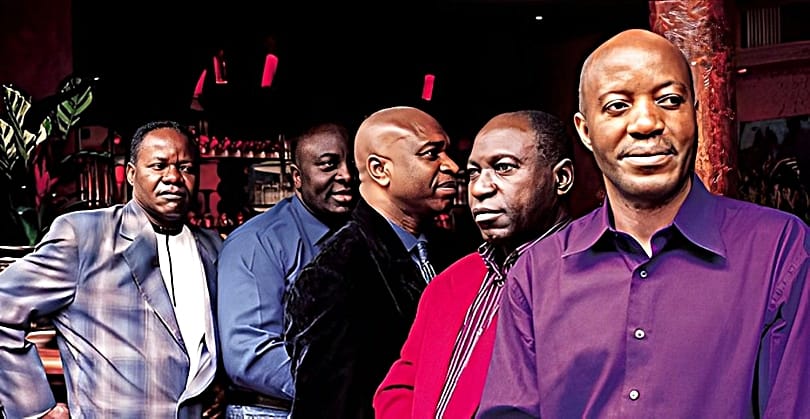
Kékélé: Reviving the Golden Era of Congolese Rumba
Origins of Kékélé
Formed in 2000, Kékélé is a Congolese supergroup whose name is derived from a fibrous tree-climbing vine found in the Congo river basin. The band’s creation was a collaborative effort to revive and preserve the rich tradition of Congolese rumba, a genre that swept across Africa in the 1950s and 1960s. Kékélé’s formation brought together veteran musicians from the Democratic Republic of the Congo (DRC), many of whom had already made significant contributions to African music.
Musical Style: A Journey Through Rumba and Cuban Influences
Kékélé’s musical style is deeply rooted in Congolese rumba, an iconic genre that blends Afro-Cuban rhythms with traditional African sounds. In the 1960s and 1970s, Congolese rumba dominated African music, making Kékélé’s revival of the genre an homage to that golden era. Their music is characterized by lilting dance melodies and the soothing, easy-going sound that evokes nostalgia for rumba’s early days. Kékélé’s repertoire reflects the historical musical exchange between Africa and the Caribbean, seamlessly merging the two cultures in their songs.
Band Composition: A Supergroup of Rumba Veterans
Kékélé’s lineup is a who’s who of Congolese music royalty. The group features eleven musicians, including core vocalists Nyboma Mwan’dido, Wuta Mayi, Bumba Massa, and Loko ‘Djeskain’ Massengo. These veteran musicians each had illustrious careers in bands like Rock-A-Mambo, Virunga, and Loketo before coming together to form Kékélé. Syran Mbenza, one of Congo’s most respected guitarists, leads the band’s intricate guitar rhythms. The band’s early albums also featured Papa Noel Nedule as music director, with Rigo Star Bamundélé stepping in for later recordings. Kékélé’s composition ensured that the band not only paid tribute to the legends of rumba but also featured them as active participants in their creative process.
Legacy and Cultural Impact
Kékélé’s emergence in 2000 was part of a broader movement to restore the prominence of classic Congolese music in the modern age. While Congolese rumba had seen some decline due to newer musical trends, Kékélé’s efforts played a pivotal role in keeping the genre alive. By bringing together seasoned artists, the band breathed new life into rumba while maintaining its traditional roots. Their music attracted a new generation of fans while reigniting passion among long-time admirers. Kékélé’s ability to fuse nostalgic sounds with contemporary influences helped solidify their place in the global music landscape.
Key Albums and Collaborations
Throughout their career, Kékélé produced several critically acclaimed albums that showcased their mastery of Congolese rumba. Their debut album, Rumba Congo, was released in 2001 and was a reminder of the grandeur of classic Congolese rumba. This was followed by Congo Life in 2003, where the band continued to refine their sound, incorporating new arrangements and influences. One of their most notable works, Kinavana (2006), saw them collaborate with renowned artists such as Manu Dibango, Mbilia Bel, and Madilu System. This album was a tribute to both Kinshasa and Havana, representing the rich musical connection between the two cities. The presence of such iconic figures on Kinavana further cemented Kékélé’s status as a cornerstone of modern rumba.
The Influence of Producer Ibrahim Sylla
Kékélé’s rise to prominence can be partly attributed to the vision of Ibrahim Sylla, the band’s producer and a key figure in African music. Sylla was instrumental in curating Kékélé’s sound and direction, ensuring that the group stayed true to the essence of rumba while also appealing to contemporary audiences. His production work brought out the best in each member, allowing their individual talents to shine within the collective framework of the band. Sylla’s contributions to Kékélé’s success cannot be overstated, as his meticulous guidance helped the band navigate the ever-changing musical landscape.
Kékélé’s Enduring Legacy
Although Kékélé hasn’t released new material since their third album, their legacy continues to influence the music scene in Congo and beyond. The band has left an indelible mark on the genre of Congolese rumba, ensuring that future generations can appreciate its historical and cultural significance. As a supergroup, Kékélé successfully honored the past while paving the way for the future of African music. Their music remains a celebration of Congolese heritage, forever intertwined with the heart and soul of rumba.



